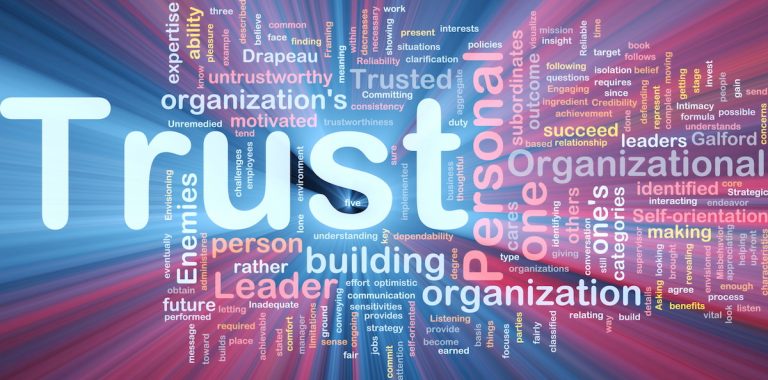A critical component of social and emotional intelligence is the ability to develop trust. Leaders that cultivate trusting relationships get the most out of their people. They build teams, and organizations, where people can rely on one another to drive business objectives. They work through challenging periods and adversity by depending on the contributions of others.
In week three of our social and emotional intelligence series, we explore the area of developing trust, the third competency of the Bandelli Social and Emotional Intelligence Competency Model™. We define developing trust as the intention of taking a risk or exposing oneself to the actions and behaviors of another person. It is allowing oneself to be vulnerable in a situation based on the positive expectations of another’s intentions. The concept of trust has played an important role in early conceptualizations of organizational functioning and continues to influence many disciplines (e.g., sociology, psychology, economics, political science, history, and philosophy). Several researchers have suggested that this continued interest has been fueled, at least in part, by accumulating evidence that trust has several important benefits for organizations and their members.
Morton Deutsch is often cited as one of the first to define trust. In his seminal work, he defined trust as a behavior that occurs when one person is placed in an ambiguous situation, where the outcome can have positive or negative consequences depending on the actions of another individual. Additionally, he suggested that negative outcomes have a greater influence on the relationship between two people than do positive ones. Although this conceptualization provided an initial basis for studying trust, other psychologists have developed their own perspectives. For example, researchers in industrial psychology viewed trust as an expectation held by an individual or group of individuals that the word, promise, verbal, or written statement of another individual or group can be relied on. Researchers in social psychology define trust as an expectation or belief that actions from another party will be motivated by good intentions. Psychologists studying executive leadership suggest that trust provides the basis for enhancing interpersonal relationships without the need for continual proof of legitimate intentions of specific individuals.
In the management and leadership development literature, trust has been examined on various levels. On the micro-level, trust has been viewed as an essential component of individual and team productivity, group cohesion, cooperation, and performance effectiveness. On the macro-level, the development of trust has been explored from the perspective of managers and leaders across organizations, in relation to the accountability organizations have with one another, on ethical behaviors across organizational contexts, in relation to the establishment of cross-organizational partnerships and corporate alliances, and with regard to understanding the influence of national culture on developing trust between multi-national organizations.
The nuances and specific processes behind developing trust have also been examined by researchers in the applied psychological sciences. A group researchers from Stanford University reviewed the trust literature over the last fifty years and derived a rigorous definition and empirical model of trust based on the relationship between employees’ behaviors and desirable organizational outcomes (e.g., their pay, promotion, or recognition). In a separate line of research, a team from Harvard University focused on the antecedents of managerial trustworthiness and the difficulties surrounding the initial stages of developing a trusting relationship at work. Additionally, other researchers have studied the negative effects of distrust and betrayal of trust in organizations.
On the practitioner side of the equation, management psychologists have been leveraging the skill of developing trust for decades. Trust is of paramount importance to any executive coaching engagement. A coach must quickly develop a genuine and trusting relationship with his/her client to drive any type of behavior changes in their leadership. Likewise, in CEO Succession, consultants need to build strong, trusting partnerships with Board Members, CEOs and CHROs. If trust is not developed early on in these relationships, the work of the management psychologists will have little lasting impact.
The development of trust is essential to the formulation of any effective workplace relationship. Leaders that build trusting relationships set the stage for true partnership and collaboration. They get the most out of their teams because people genuinely want to support one another.
Like establishing rapport and understanding others, developing trust can be developed over time. Through coaching and feedback, leaders can practice the requisite behaviors needed to strengthen their trust building capabilities.
Next week, we will explore the fourth, and final dimension of the Bandelli Social and Emotional Intelligence Competency Model: Cultivating Influence.
For more information on the Bandelli Social and Emotional Intelligence Competency Model™ contact us at abandelli@bandelliandassociates.com.
Leadership Matters. Without It, People Fail.


